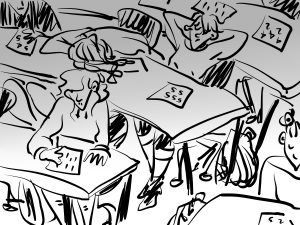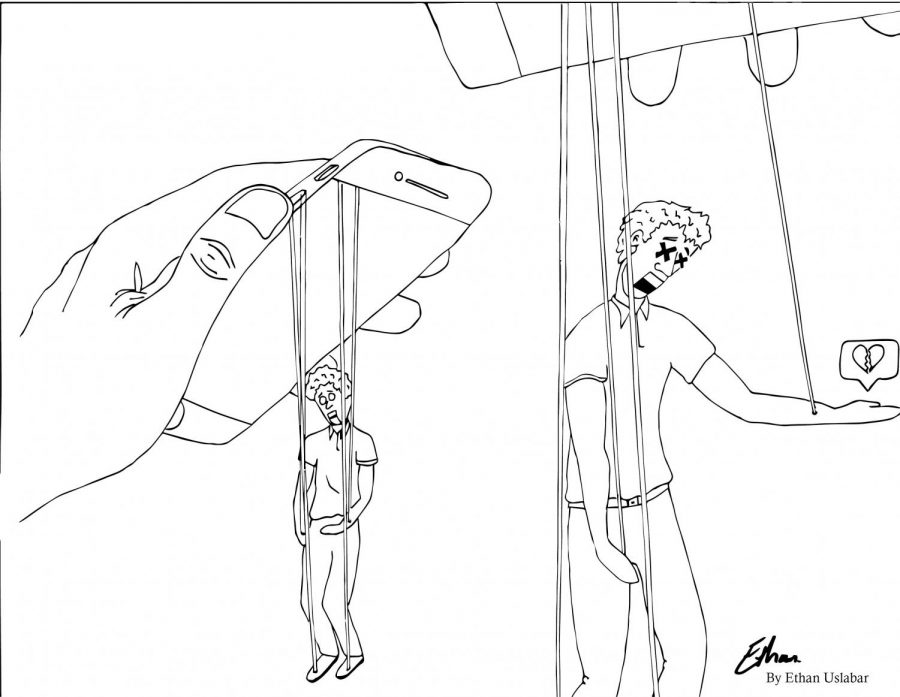[media-credit id=157 align=”alignleft” width=”300″] [/media-credit]
[/media-credit]
College professor review websites, such as Rate My Professor, make the process of choosing courses much less stressful for college students, as it provides other students’ perspectives on the professors who lead the classes, as well as insight on the course itself.
Knowing what other students have to say about courses and professors is important because those former students are usually the people who can give the most accurate information about what a professor is like, as they have already experienced the class. The release of the results will also hold professors more accountable for their teaching styles.
UW Oshkosh students undergo a similar process to Rate My Professor toward the end of every semester when they fill out evaluations for each of their classes, hand them in and never see the surveys again. Unlike Rate My Professor, these surveys are not public.
According to the UW System Policy on Student Evaluation of Instruction, student evaluation of teaching is an important source of information on classroom performance.
If this information was available to students, it would be useful to them as well when it comes to choosing future classes.
The University should consider making evaluation results public record. The evaluations should also be changed from a 1-5 scale to a more open-ended form where students could actually be given the opportunity to let their thoughts about professors be heard.
When students are handed these evaluations, a lot of the times they probably fill them out without putting a lot of thought into their answers so they can leave class sooner and move onto other things. If they never find out the results of the evaluations, what they say in their responses probably does not matter all that much to them.
Students would be less inclined to rush when they fill out their responses if they understood the importance of the evaluations. Student responses on these evaluations are actually valuable to people who make decisions about tenure and helpful to students who want to know what a course is like.
According to the UW System Policy on Student Evaluation of Instruction, “teaching ability should be one of the chief criteria considered in tenure decisions and in the retention, promotion, and compensation of faculty.” If evaluations play such an important role in these decisions, students should be able to know what the results are.
If evaluations gave students a broader opportunity to share their thoughts, they could rate the professor, class and grades separately and even explain their answers.
Instead of just circling all 1s or 5s, they could actually explain why they think the professor is good or bad at their job.
In a May 19, 2015 article by Stacey Patton titled “Student Evaluations: Feared, Loathed and Not Going Anywhere,” Janet Wilson said students think more carefully about their responses when they are given more class time to fill out the forms.
“If they’re in a hurry, they’ll give you all fives unless they’re mad at you,” Wilson said.
If a professor receives a low score on their evaluations, they will most likely have to figure out how they can get the numbers up even though they probably do not know what it is they are doing wrong. Nothing will change and the cycle will just continue.
According to Anthony C. Krautmann and William Sander in their 1999 journal “Grades and student evaluations of teachers,” evaluations are flawed because professors can ensure higher scores simply by giving higher grades to students.
“This process may be contributing to the inflation of grades in higher education if faculty have an incentive to increase their evaluations,” they said. “Instructors can ‘buy’ better evaluations through more lenient grading.”
If students could actually explain their answers when evaluating their professors, the professor would have a better understanding of how they can improve their teaching style, rather than swaying students to give them higher ratings through non-academic incentives like giving everyone As or handing out candy. Since professors are unaware of what needs to be fixed, they might even be less inclined to fail people who deserve to be failed.
These surveys used to give students the option to add their own comments, and that process should be brought back for students who have things to say about professors and classes.
The 1-5 scale tells the professor nothing, especially because of student bias; students usually fill out all 1s if they hate a class and all 5s if they love it. If students had access to the results, they would be just as confused by the answers as the professors. Having the evaluations more open-ended would make the results more understandable for everyone and would also give professors some ideas about what may need to be changed.
The University should seriously consider allowing evaluation results to become public record. Not only would it make choosing classes easier for students who want to know what is to be expected of a professor or class, but it would also help everyone understand what happens after the evaluations are turned in and why certain professors are given promotions or even disciplinary actions.
Changing the format of evaluations would also make it easier for professors to understand how they could improve their teaching methods and give students an opportunity to better express their thoughts about both professors and classes. Updating the evaluation system at UW Oshkosh could very likely improve the teaching styles of many professors. It also ensures that student voices are being heard, their input into evaluations isn’t useless and their ideas contribute to the betterment of the University.
















